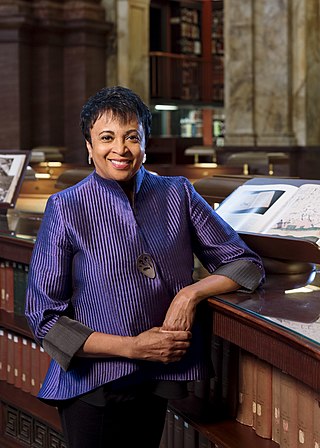Related Research Articles

Josias Simmler was a Swiss theologian and classicist, author of the first book relating solely to the Alps.

Conrad Gessner was a Swiss physician, naturalist, bibliographer, and philologist. Born into a poor family in Zürich, Switzerland, his father and teachers quickly realised his talents and supported him through university, where he studied classical languages, theology and medicine. He became Zürich's city physician, but was able to spend much of his time on collecting, research and writing. Gessner compiled monumental works on bibliography and zoology and was working on a major botanical text at the time of his death from plague at the age of 49. He is regarded as the father of modern scientific bibliography, zoology and botany. He was frequently the first to describe species of plants or animals in Europe, such as the tulip in 1559. A number of plants and animals have been named after him.

A librarian is a person who works professionally in a library providing access to information, and sometimes social or technical programming, or instruction on information literacy to users.

The following outline is provided as an overview of and topical guide to library science:

Jesse Hauk Shera was an American librarian and information scientist who pioneered the use of information technology in libraries and played a role in the expansion of its use in other areas throughout the 1950s, 60s, and 70s.

The American Association of Law Libraries "is a nonprofit educational organization with over 5,000 members nationwide. AALL's mission is to promote and enhance the value of law libraries to the legal and public communities, to foster the profession of law librarianship, and to provide leadership in the field of legal information and information policy."
Music librarianship is the area of librarianship that pertains to music collections and their development, cataloging, preservation and maintenance, as well as reference issues connected with musical works and music literature. Music librarians often have degrees in both music and librarianship. Music librarians deal with standard librarianship duties such as cataloging and reference, which become more complicated when music scores and recordings are involved. Therefore, music librarians generally read music and have at least a basic understanding of both music theory and music history to aid in their duties.

Library and information science(s) or studies (LIS) is an interdisciplinary field of study that deals generally with organization, access, collection, and protection/regulation of information, whether in physical or digital forms.
Bibliotheca universalis (1545–49) was the first truly comprehensive "universal" listing of all the books of the first century of printing. It was an alphabetical bibliography that listed all the known books printed in Latin, Greek, or Hebrew.

Foster Edward Mohrhardt was a United States librarian. He had a long and illustrious career in library and information science as a scholar, organizer and diplomat, and was listed by American Libraries among "100 Leaders we had in the 20th Century". Mohrhardt is also known for his work to have the United States Department of Agriculture Library re-designated as a national library.
Derek Austin was a British librarian and author.
Jack Mills was a British librarian and classification researcher, who worked for more than sixty years in the study, teaching, development and promotion of library classification and information retrieval, principally as a major figure in the British school of facet analysis which builds on the traditions of Henry E. Bliss and S.R. Ranganathan.
Louise Noëlle Malclès was a French librarian, bibliographer and teacher who was a key figure in French librarianship and the author of one of the most important bibliographical works of the mid-20th century. She was one of the first notable French female library professionals, in a field which had been traditionally dominated by men. She was awarded the Legion of Honour for her immense contributions to the field of library science.

The University of Chicago Graduate Library School (GLS) was established in 1928 to develop a program for the graduate education of librarians with a focus on research. Housed for a time in the Joseph Regenstein Library, the GLS closed in 1989. GLS faculty were among the most prominent researchers in librarianship in the twentieth century. Alumni of the school have made a great impact on the profession including Hugh Atkinson, Susan Grey Akers, Bernard Berelson, Michèle Cloonan, El Sayed Mahmoud El Sheniti, Eliza Atkins Gleason, Frances E. Henne, Virginia Lacy Jones, Judith Krug, Lowell Martin, Miriam Matthews, Kathleen de la Peña McCook, Elizabeth Homer Morton, Benjamin E. Powell, W. Boyd Rayward, Charlemae Hill Rollins, Katherine Schipper, Ralph R. Shaw, Spencer Shaw, Peggy Sullivan, Maurice Tauber and Tsuen-hsuin Tsien.

The International Association of Music Libraries, Archives and Documentation Centres (IAML), also known as Association Internationale des Bibliothèques, Archives et Centres de Documentation Musicaux (AIBM) and Internationale Vereinigung der Musikbibliotheken, Musikarchive und Musikdokumentationszentren (IVMB), is an organisation of libraries with music departments, music conservatory libraries, radio and orchestra archives, university institutes, music documentation centers, music publishers, and music dealers that fosters international cooperation and promotes music bibliography and music library science. It was founded in Paris in 1951 and its three official languages are English, German, and French.
W. Boyd Rayward is an Australian librarian and scholar, best known as the biographer of Paul Otlet.

Henry Cummings Campbell BA BLS MA was a Canadian educator and librarian, and Chief Librarian of the Toronto Public Library.
The Canadian Association of Music Libraries, Archives and Documentation Centres is a national association that represents music librarians across Canada. Members work in organizations that support musical activities in Canada, including libraries, archives, conservatories, and universities. The organization aims to support all aspects of music librarianship in Canada, including research and scholarship, and to cooperate with other national and international organizations concerned with music.

Dietrich Hans Borchardt was an Australian librarian and bibliographer.
Leonard Montague Harrod was a British librarian and indexer. He was the librarian and the director of the Raffles Library in Singapore, and the Chief Librarian and Curator of Islington Public Libraries.
References
- 1 2 3 4 5 6 Bell, Hazel (1998). "Personalities in Publishing: Hans Wellisch". Journal of Scholarly Publishing. 29 (4): 227.
- 1 2 3 4 5 6 "Wellisch, Hans H(anan) 1920-2004". Encyclopedia.com. 1920-04-25. Retrieved 2021-02-07.
- ↑ "USC Shoah Foundation Institute testimony of Hans Wellisch - United States Holocaust Memorial Museum". Collections Search. Retrieved 2021-02-07.
- ↑ "Hans Wellisch Obituary". The Washington Post. 2004-02-06. Retrieved 2021-02-07.